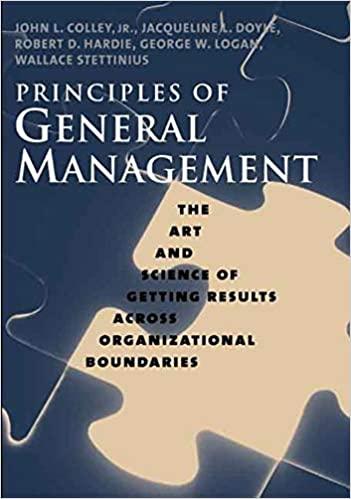Answered step by step
Verified Expert Solution
Question
1 Approved Answer
There has never been a more apposite time to unravel the phenomenon of venture failure. There exists currently an extremely challenging environment for entrepreneurs due
There has never been a more apposite time to unravel the phenomenon of venture failure. There exists currently an
extremely challenging environment for entrepreneurs due to ongoing global economic challenges, with many economies
witnessing a sharp increase in business failure rates. South Africa has not escaped this dire predicament. For many South
African entrepreneurs, failure remains a very real prospect. Consequently, academic work needs to reflect this rapid change
in fortunes, warranting a much more prominent position for failure in contemporary discussions of entrepreneurship.
Whilst failure is lauded as a fundamental learning experience, theorists have acknowledged that this view of failure is often
espoused in popular management literature that bases its assertions on anecdotal evidence. There remains a paucity of
academic studies that have articulated failure empirically and ground policy discussions in practical quantitative accounts.
With so many businesses failing, it is vital to understand further how entrepreneurs recover and move on from this often
painful and damaging experience and thereby highlight the positive and productive lessons that business failure can
engender Cope Shepherd, Shepherd et al Whyley, Evidence from the literature suggests
that failure can produce futureoriented learning outcomes that increase the entrepreneur's level of entrepreneurial
preparedness for further enterprising activity. Cope argues that generative learning outcomes are highly valuable
and productive as entrepreneurs can develop a cognitive early warning system enabling anticipatory corrective actions to
be taken in subsequent ventures Politis
At a fundamental level, venture failure studies can contribute towards streams of research that can explain, at least in part,
why some more successfully recover from the negative emotional reaction to the loss of a failed business than others
Shepherd: Entrepreneurs who actively process a failure event are in a unique position to start a successful new
businessShepherd et al:
Requirement and additional information:
As a business researcher with a keen interest in business failure, you have been contracted by a venture capitalist seeking
to unpack the dynamics of recovery from previous venture failure. The study seeks to examine the impact of venture failure
experience and entrepreneurial learning from failure on subsequent venture performance in the South African context. You
think that the findings from the study will be useful in building a model to explain this prominent entrepreneurship
phenomenon.
Data collection and analysis:
In an empirical examination of entrepreneurs operating in multiple industries in South Africa, you collected a
longitudinal data set to explain whether, and to what extent, venture failure experience and entrepreneurial learning from
failure influence new venture performance. All data was measured at the interval level. Table below is an excerpt of the
data collected for the study.
Table : excerpt of the data collected from entrepreneurs in a longitudinal study.
Entrepreneur Ref # Venture failure experience Entrepreneurial failure
learning
New venture performance
You used IBM SPSS Statistics version to analyse the data and the following output shown in Figure I to Figure IV was
produced:
Figure I: Descriptive Statistics
Mean Std Deviation N
Newventureperformance
Entrepreneurialfailurelearning
Venturefailureexperience
Figure II: Regression model summary New venture performance
Model Summary b
Model R R Square Adjusted R Square Std Error of the Estimate
a
a Predictors: Constant Venturefailureexperience Entrepreneurialfailurelearning
b Dependent Variable: Newventureperformance
Figure III: Results of ANOVA for new venture performance model
ANOVAa
Model Sum of Squares df Mean Square F Sig.
Regression
b
Residual
Total
a Dependent Variable: Newventureperformance
b Predictors: Constant Venturefailureexperience Entrepreneurialfailurelearning
Figure IV: Regression coefficients for new venture performance model
Coefficientsa
Model
Unstandardized
Coefficients
Standardized
Coefficients
B Std Error Beta t Sig.
Constant
Venturefailureexperience
Entrepreneurialfailurelearning
a Dependent Variable: Newventureperformance
REQUIRED:
Formulate a title for the study. marks
Based on the background information, elaborate on the research paradigm and research design of your
study.
marks
Specify the independe
Step by Step Solution
There are 3 Steps involved in it
Step: 1

Get Instant Access to Expert-Tailored Solutions
See step-by-step solutions with expert insights and AI powered tools for academic success
Step: 2

Step: 3

Ace Your Homework with AI
Get the answers you need in no time with our AI-driven, step-by-step assistance
Get Started


